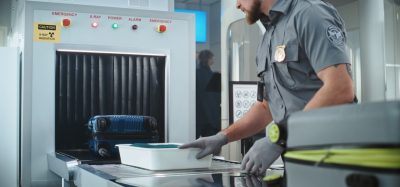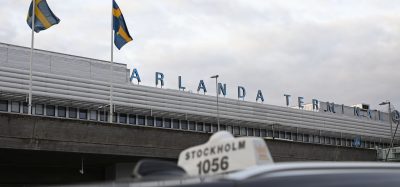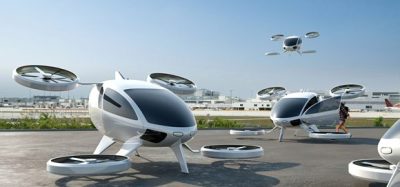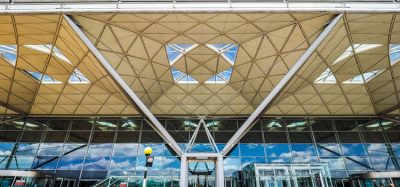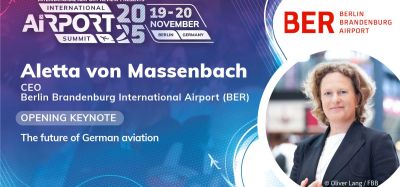Detrimental effects to environment caused by aviation growth
Posted: 28 January 2019 | International Airport Review | No comments yet
The predicted increase in greenhouse gas emissions could undermine efforts to mitigate climate change and limit the global temperature rise to below the target of two degrees Celsius in the Paris Agreement.


The outgoing Commissioner of Transport Violeta Bulc received the 2nd European Aviation Environmental Report (EAER) which has been prepared and published by the European Union Aviation Safety Agency (EASA), in cooperation with the European Union Environment Agency (EEA) and EUROCONTROL. The report provides an assessment of the historic and forecasted environmental performance of the European aviation sector, along with the latest information on various mitigation measures to reduce the environmental impact of aviation.
The report states that overall environmental impacts from aviation have increased by 10 per cent for CO2, 12 per cent for NOX (nitrogen oxides) and 14 per cent for noise since 2014. Looking ahead, in the most likely traffic forecast, existing environmental impact mitigation measures are unlikely to counteract the increasing environmental impacts as the number of flights in Europe are expected to grow by 42 per cent from 2017 to 2040. In that same time frame, aircraft CO2 emissions are predicted to increase by 21 per cent and NOX emissions by 16 per cent. The number of airports that handle more than 50,000 annual aircraft movements is expected to increase from 82 in 2017 to 110 in 2040 and aviation noise may therefore affect new populations in the future.
EASA Executive Director, Patrick Ky, commented: “We need concrete and effective action to reduce aviation emissions over the next 10 years in order to support the Paris Agreement objectives and mitigate climate change. The aviation sector must play its part in this global effort. Addressing noise and air quality issues at a local level are also critical. Since EASA’s rules and our competencies with regard to environment have been further strengthened by the European Union, EASA now plays a leading role in actively developing and implementing measures to address these challenges in cooperation with our partners.”
Join us live: Shaping the Next Generation of Hold Baggage and Air Cargo Screening
Join us live for an insightful webinar on 11th December at 14:00 GMT, in collaboration with Smiths Detection, as we explore the strategic balance of operational efficiency, regulatory compliance, and sustainability in high-volume security environments.
This session offers a focused look into future-proofing your security strategy.
Key learning points
- Cost Reduction: Strategies to minimize bag travel time while simultaneously reducing operational costs.
- Regulatory Roadmap: Insights into the next wave of regulatory changes and their impact on future investment decisions.
- Sustainable Systems: Practical approaches to building sustainability into security systems and lowering the total cost of ownership (TCO).
- Scalable Solutions: Real-world examples of scalable systems supporting current airport growth and preparing for tomorrow.
Register now for expert insights, case studies, and actionable strategies on operational efficiency!
Commissioner Bulc said: “As Europeans we must continue to pioneer the battle against climate change. This new report shows that our joint actions are working: we have reduced fuel burn and noise per flight; investments have delivered more efficient technologies; airports are becoming carbon neutral, and finally we are starting to implement the first-ever global scheme to offset CO2 emissions.”
EASA’s new regulation enables the Agency to play a greater role on environment and work together in developing solutions in partnership with stakeholders (e.g. EU institutions, States, Industry, NGOs). As well as the publication of the European Aviation Environmental Report that contains an objective, accurate overview of the environmental performance of the aviation sector, the Agency’s extended environmental remit now includes, amongst other things: maintaining state-of-the-art environmental standards; certifying aircraft and engines against environmental standards; environmental modelling; research on new emerging topics (e.g. sustainable aviation fuels, electric and hybrid engines, drones, supersonics); promotion of improved environmental performance and international cooperation projects on environmental protection.
Join our free webinar: Beyond silos: How ecosystem thinking elevates the airport experience
In today’s complex aviation landscape, airports are moving beyond siloed operations to embrace a new era of collaboration. This webinar focuses on how leading airports are using ecosystem thinking to adapt, personalize, and continuously improve every touchpoint, boosting both passenger satisfaction and non-aeronautical revenue.
Date: 13 Nov | Time: 10:00 GMT
REGISTER NOW TO SECURE YOUR SPOT
Can’t attend live? No worries – register to receive the recording post-event.
Related topics
Economy, Emissions, New technologies, Noise abatement, Regulation and Legislation, Sustainability, Sustainable development
Related organisations
EUROCONTROL, European Aviation Safety Agency (EASA), European Union Environment Agency (EEA)



